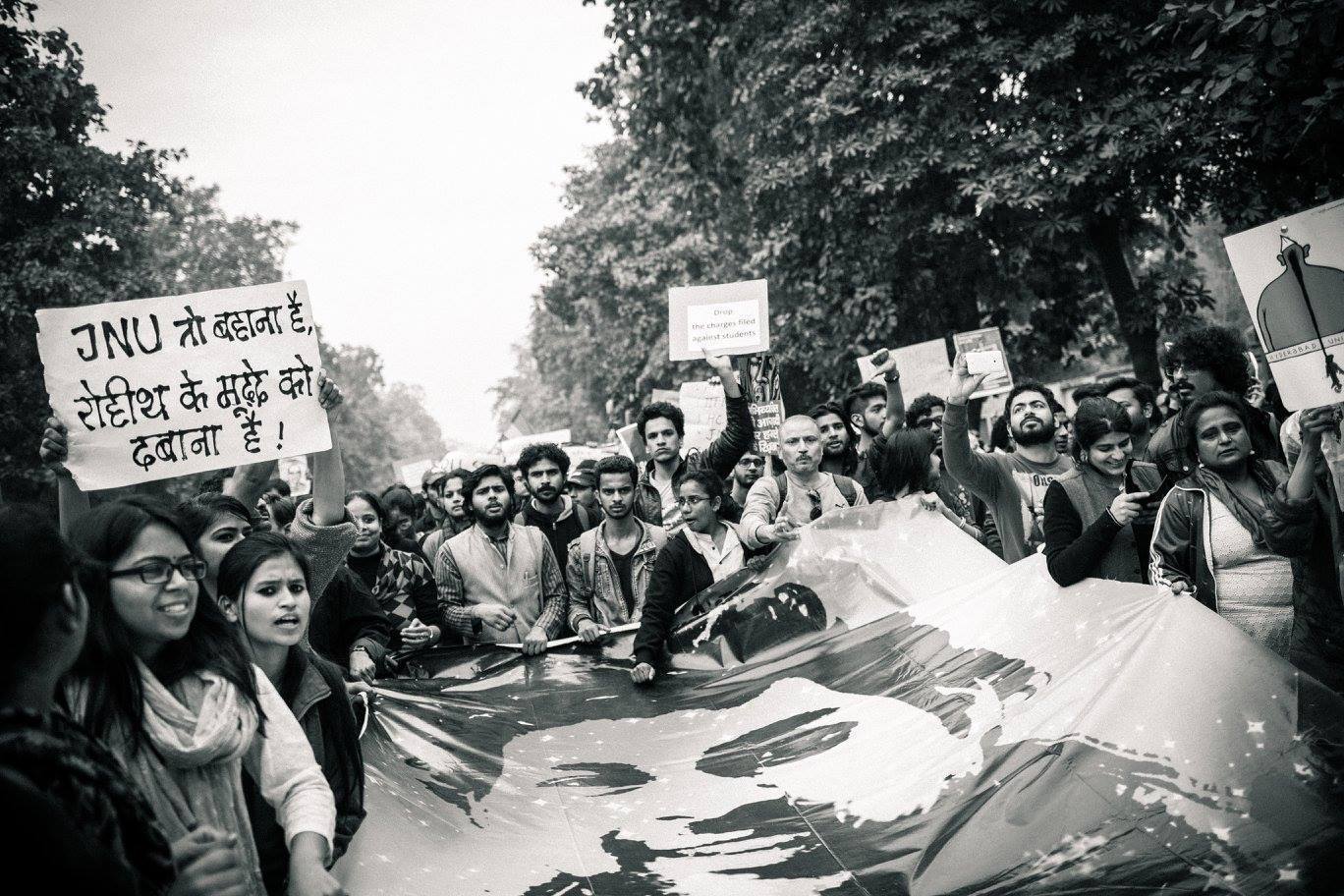An Irony Of Orwellian Proportions Now Engulfs The BJP

MUMBAI: In 2013, Dr. Subramanian Swamy merged the Janata Party with the BJP. It was not a particularly momentous occasion, but BJP party president Rajnath Singh hailed the event for the purpose it would serve the “nationalistic” cause ahead of the 2014 general election. Swamy, himself an admirer of the political ideology espoused by the BJP and a Nehru-Gandhi detractor of critical acclaim, did not seem at all out of place. Concurrently, UPA2 was nearing its expected/anticipated date of expiration. No one with any political acumen expected the Congress to come back into power and the Modi-led BJP appeared an inevitable outcome. The merger itself was a largely symbolic event, as the Janata Party had been a part of the National Democratic Alliance. All that, however, is recent history: in order to sufficiently understand the irony of Orwellian proportions that now engulfs the BJP amid the chaos surrounding JNU, the clock must be wound back further.
The BJP itself was born out of the Janata Party; etymological factors aside, the parent party’s relative demise in 1980 enabled the members of the Bharatiya Jana Sangh to form the BJP. The Janata Party also incubated the political careers of several BJP stalwarts including Arun Jaitley, Pramod Mahajan and L.K. Advani. The roots of the Janata Party were sown in Bihar, in what was an emphatic display of the power of mobilisation, especially among disenchanted students. After initially being focused on the corruption and largesse of the state government, the Bihar Movement manifested into a larger movement with a more national message and was one of the precursors to the declaration of the Emergency by Indira Gandhi, which included the government attempting to control the judiciary, fostering a cult of personality around their leader and curtailing the freedom of the press to remain independent and bipartisan.
Of India’s colourful political history, the Emergency marks one of its darkest moments. Several leaders including the pioneer of the Bihar Movement – Jayaprakash Narayan – found themselves under arrest by an increasingly paranoid government which frequently utilised the law of sedition and the rhetoric of ‘anti-national elements’ and unacceptability of dissent as a means to justify the excesses and the extremes that it imposed on India’s civic society. Among those who had been arrested by the state was Arun Jaitley, who was at the time a leader in the Akhil Bharatiya Vidyarthi Parishad (‘ABVP’), as well as the President of the Student’s Union of Delhi University. Jaitley spent nearly two years under arrest.
The Janata Party was formally created only in 1977, after political prisoners who were released during the twilight months of the Emergency banded together to sweep Indira Gandhi out of power in the 1977 elections. Although the government that it formed at the centre was short-lived, it remained a watershed moment in India’s history. Several key figures of that generation were cognizant of India’s colonial history and had already played their role in delivering the people of India political freedom. They did not want for that freedom to be usurped by a localised replacement. The overwhelming irony lies in the fact that like Jaitley, figures that were part of the students’ movement against the government have now become a part of the establishment, they remain oblivious to India’s polity and its discontents.
(If its thirteen day interregnum in 1996 can be looked over briefly), the BJP in its second coming led by Modi and guarded closely by the RSS seem to have forgotten these very critical aspects of history. In pulling the “anti-national” card as a means to justify arrest of students who began their protest peacefully, they are turning into the very Goliath that the Janata Party’s David slew back in 1977.
Admittedly, the current government has yet to descend into the madness that surrounded the emergency. However, it is important to state that instead of attempting to understand the roots of discontent and engaging in a meaningful debate about capital punishment and the oppression of the state of Kashmir under the Armed Forces Special Powers Act, the government has continued to utilise any political sentiments, which go against the grain, into further fuelling the polarisation of India’s polity. The ABVP itself has been complicit from the very start of the issue and this evident from the recent resignation of three of the student union’s key leaders.
The BJP and its ancillaries could have drawn from the very basic fabric of their party’s creation to react in a mature manner, and might have then faced a more mature polity. However, their ignorance of the role played by the mobilisation of students around socialist ideals, as well as of basic Hegelian dialectics does not bode well for the wars to come.
(Kartikeya has completed degrees in Philosophy, Politics and International Relations and currently works for a a risk advisory firm in Mumbai. He does not support the Congress.)
(Photo courtesy Tanushree Bhasin. Taken at the JNU Solidarity March, New Delhi).



